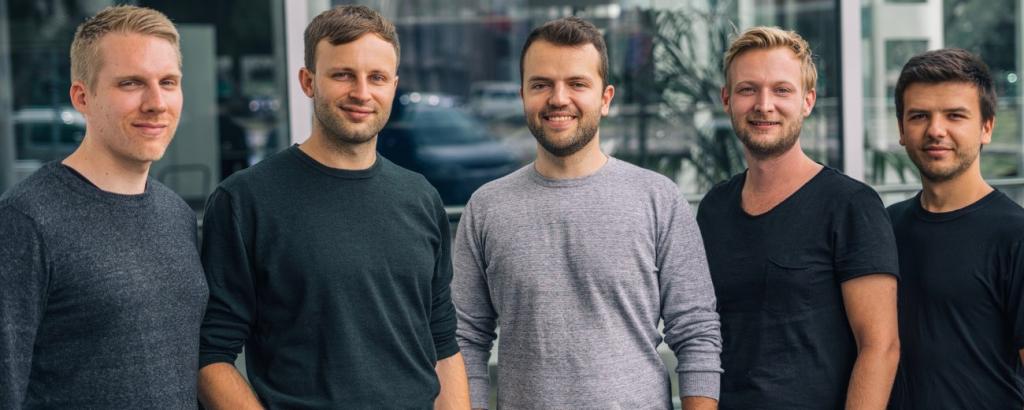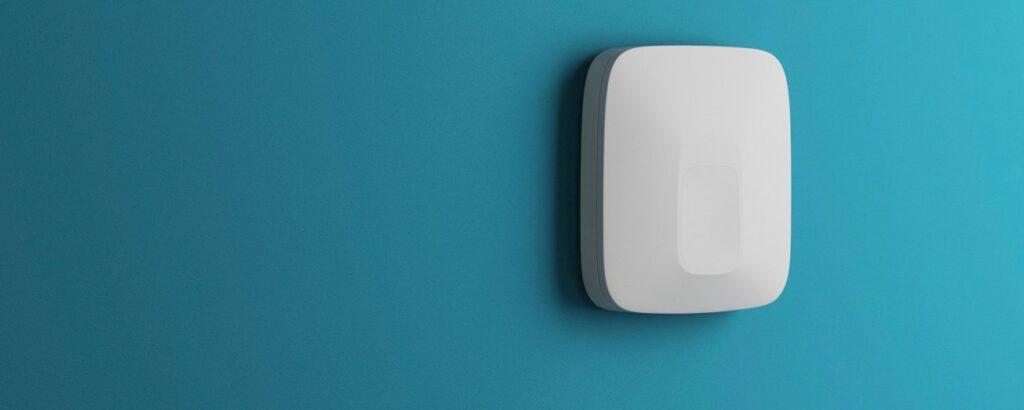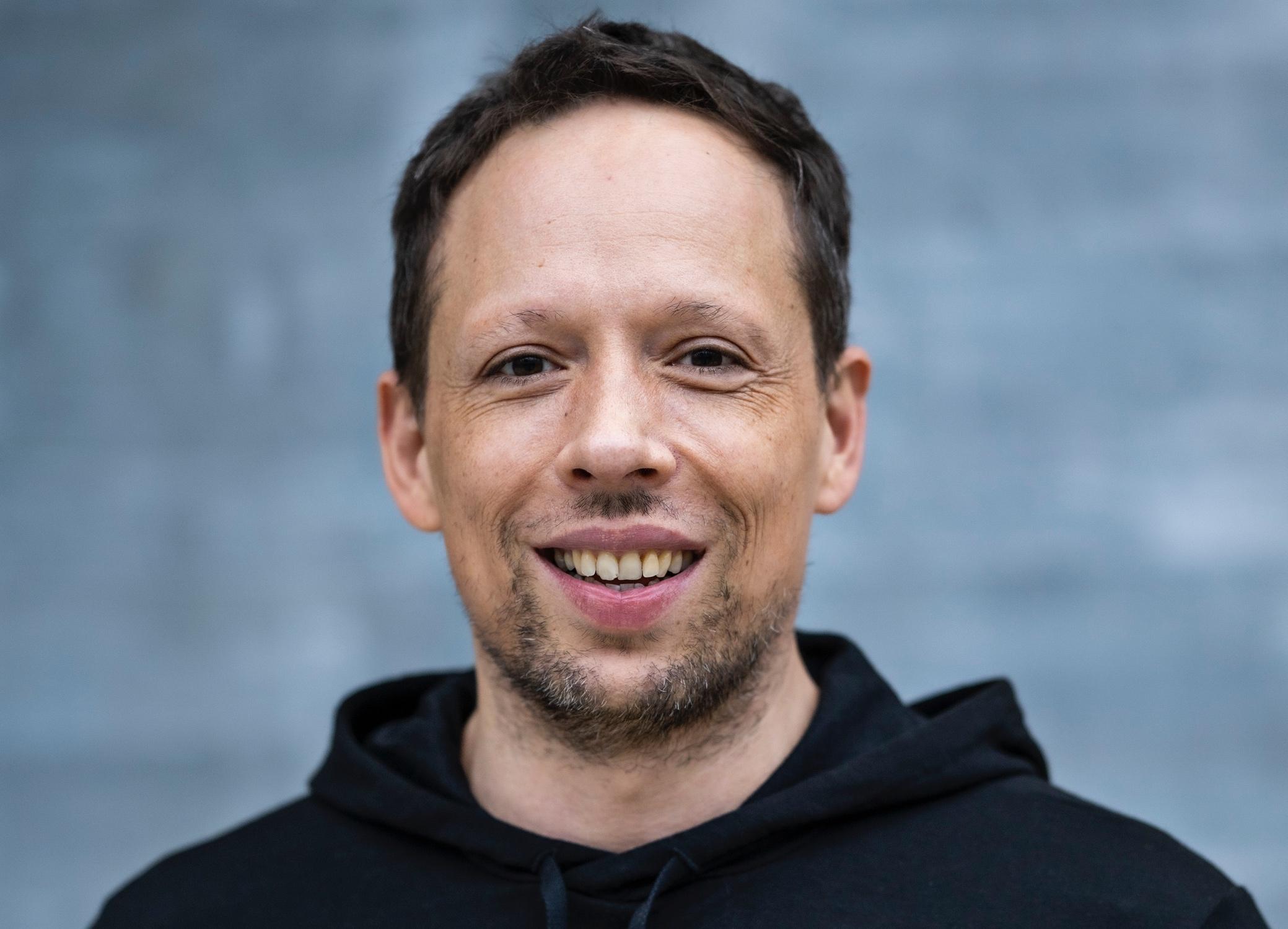nevisQ

Interview partner: Stelios Katsanevakis
Why did you found your start-up, what problem are you addressing and how are you solving it?
Nursing homes are under enormous pressure: the shortage of nurses, cost pressure and the growing number of residents with dementia are just a few examples. At nevisQ, we support care homes with intelligent room technologies - without compromising on privacy. Our sensor-based AI solution, nevisCura, makes the lives of care home residents safer and care work more efficient. Critical situations such as falls, getting out of bed and leaving the room or facility are automatically detected and care staff are notified. This is particularly useful at night when only a few nurses are working in the facility. The activity analysis helps nurses to provide more targeted care. It can be achieved, for example, by detecting a high number of daily toilet visits, a high level of nocturnal activity or changes in gait. By linking this information with data from other sensors and care documentation, care can be further improved to prevent critical situations and illnesses.
How did you come up with the idea of founding your start-up?
The actual idea for nevisQ came about at the end of 2014. Christian, David and Dennis attended a lecture at RWTH Aachen University where they were asked to write a business plan for a business idea. The business idea was about intelligent skirting boards that are able to discreetly monitor activities in care homes. The concept was initially developed as part of a research project at RWTH Aachen University. Christian, David and Dennis had previously gained experience in the care sector and were therefore very interested in working on such a solution. After writing the business plan, they decided to put the business idea into practice. I got to know them in mid-2015 after David met my friend by chance at another lecture. I was intrigued by both their vision and the technological challenge and decided to join them. At that point, the idea was mature enough and we were ready to found nevisQ and start the technical development.

What have you learned so far?
The lessons are truly countless. That's one of the great things about founding/working at a startup; you have to constantly observe, adapt and learn. You gain experience from different areas and get a sense of the big picture. If I were to summarize some of the high-level learnings, it would be these:
- Stay focused on your goal. The path that leads to your goal will "automatically" form.
- Recognize that you don't know many things. Only with this mindset can you start to learn.
- Listen to others. You may find yourself trapped when trying to solve a problem. An out-of-the-box perspective often solves the problem within minutes.
- Be patient. External factors that you can't control are sure to pop up and delay things. In a startup conquered by an extremely dynamic and agile environment, such delays can feel exhausting. However, the only sensible thing to do is to keep reacting to the things you can control.
Why are you on Startbase
A crucial part of a startup's success is high visibility and a wide network of connections. These can be, for example, the right investor at the right time, production partners, distribution partners, etc. We welcome and are grateful for initiatives like Startbase that aim to help young innovative companies grow faster.
Who is the mastermind in your team and what is their superpower?
The mastermind is the team itself. By merging different personalities, opinions and skills, we achieve things that a single brain would consider impossible. That's the superpower: making seemingly impossible things possible by working together.
Where do you see yourselves in 3 years?
Our goal is to play a leading role in improving the quality of care for older people and to support the hard-working nurses in Germany until then. We want to achieve this by distributing our existing solution to an ever-growing number of nursing homes, but also by expanding the functionalities of our solution. We will probably have started expanding in other countries as well. We have already carried out some test installations with a partner in Spain.
Do you still have a real social life since the foundation?
Yes and no. My social life has changed drastically since we founded nevisQ. It's not trivial to separate work and private life as a founder. There's often not enough time to go out with old friends like I used to, and this sudden change has damaged some of my friendships.
Another example: limited time also affects vacation time. It always seems to be a bad time to go on vacation because there is always something important going on. I've realized that it's responsible to just take a vacation when you need it, even if it doesn't feel right. Taking time off is essential to get my mind in order. In my experience, it improves productivity and is therefore also the best thing for the company.
My new social life mainly consists of the startup universe. I get to meet other eager and inspiring founders when I have the chance to attend exciting startup events. This can sometimes lead to new friendships. As I become more aware of this transition, I'm trying to strike some balance between the two worlds and get the best out of both; expanding my social life while looking after my old one. It can be very emotionally challenging and it's something I've struggled with, but I've managed to come to terms with it.
What advice would you give to other founders?
As cheesy as it may sound, before you found a startup, make sure you're really passionate about it. In my opinion, this is an important ingredient to stay strong enough in difficult times and be able to overcome them. I'm sure all startups face such difficulties. Another thing I would recommend is not to be overcautious with your idea. This is something I often observe in early-stage startups and something I'm guilty of myself. What really makes the difference is the execution of the idea. The magic ingredient for good execution is an exceptional team. To create an exceptional team, you need to share your idea and try to motivate and convince great minds to join the journey.
What has really gone wrong since you started?
There have been many ups and downs since we started. However, I consider us pretty lucky as nothing has really gone wrong so far (fingers crossed). When we talk about luck, I think it's an aspect that many underestimate, although it plays an important role in how things turn out. Apart from that, it's our job to recognize good opportunities and take advantage of them.
What were the biggest challenges you had to overcome in the beginning?
Personally, one of the biggest challenges was learning and ignoring the pressure from my social circles. When I announced my plans to embark on such a path, a lot of skepticism followed. Starting your own business is considered unconventional and very risky. It is not the "safe" way. This leads to constant psychological pressure that can make you doubt yourself and thus reduce your effectiveness. Ironically, this well-intentioned concern from your inner circles can make this path even riskier. One big exception is my girlfriend, who has been supportive and understanding throughout the journey. In general, I've been fortunate that this attitude changed significantly after our initial successful moments at the beginning and the people around me became much more supportive. Unfortunately, I know this is not the case for many founders.

Newsletter
Startups, stories and stats from the German startup ecosystem straight to your inbox. Subscribe with 2 clicks. Noice.
LinkedIn ConnectFYI: English edition available
Hello my friend, have you been stranded on the German edition of Startbase? At least your browser tells us, that you do not speak German - so maybe you would like to switch to the English edition instead?
FYI: Deutsche Edition verfügbar
Hallo mein Freund, du befindest dich auf der Englischen Edition der Startbase und laut deinem Browser sprichst du eigentlich auch Deutsch. Magst du die Sprache wechseln?












